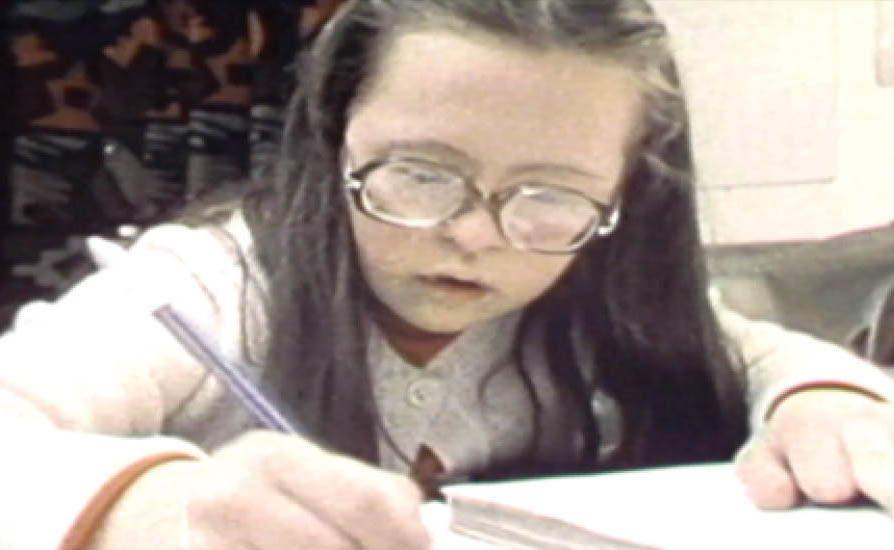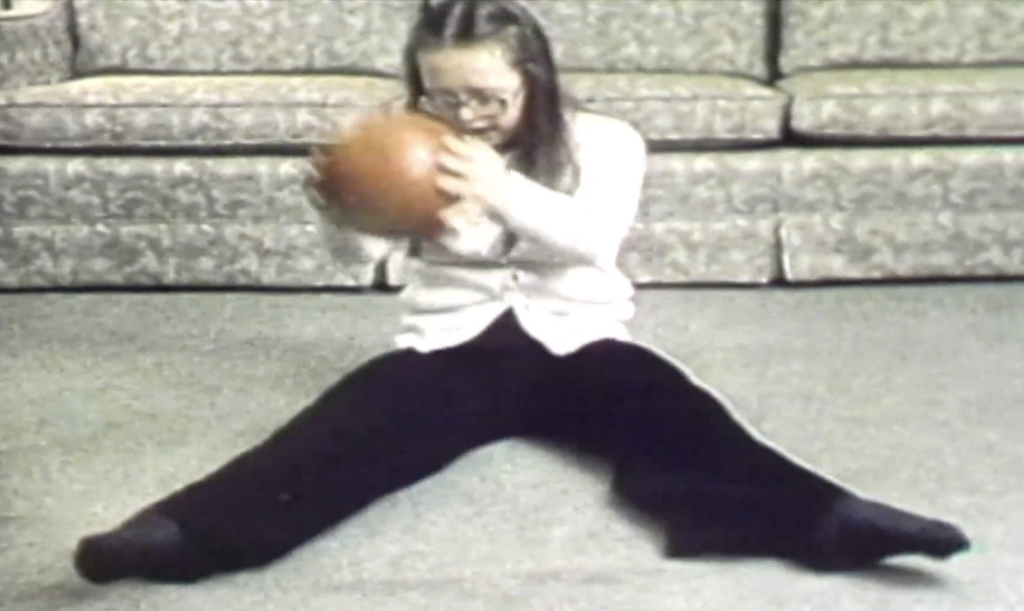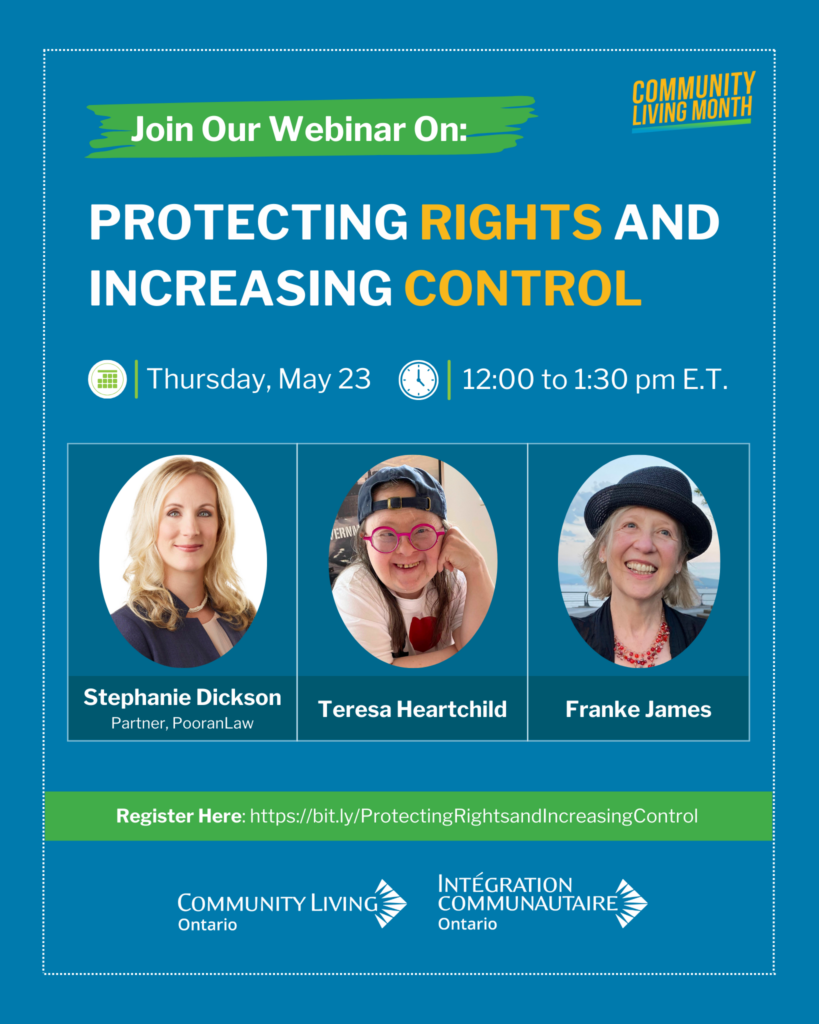
Webinar: Protecting the Rights of People with Intellectual Disabilities
The story behind Teresa’s and my involvement in Community Living Ontario’s webinar goes back forty-five years to 1979 when the documentary Exploding the Myth aired across Canada—with Teresa in it. The film was produced by Community Living Ontario, which is hosting this webinar now!
![TV listing ad for “Exploding the Myth” features thirteen-year-old Teresa wearing glasses and holding an exercise ball in her arms. Teresa looks at the camera with an expression of curiosity and wonder. Her lips are parted as though she’s about to speak. The ad text said, “Exploding the Myth. Thirteen-year-old Teresa [redacted surname] plays an important role in Exploding the Myth, a documentary special which explores the attitudes of a significant portion of the general public toward those who are mentally handicapped. Images and text used with permission from Community Living Ontario.](https://freeingteresa.com/wp-content/uploads/2024/05/04-1979-03-19-ExplodingTheMyth-Advert-1024x608.jpg)
Exploding the Myth’s goal was to debunk false myths and expose pervasive negative social attitudes that limited the inclusion of people with intellectual disabilities. Teresa starred in the documentary to show how inclusion worked.
Teresa proved that the myths were false
“Myth: The intellectually disabled should be segregated in institutions. It’s best for them.” (Teresa lived at home.)
“Myth: Children with intellectual disabilities should not mix with normal children.” (Teresa went to the same girls’ school I went to.)
“Myth: People with intellectual disabilities are strictly limited in what they can do.” (Teresa was breaking barriers and starring as a role model for social inclusion.)

Teresa’s happy lifestyle flew in the face of all the myths. She was living a normal life for a girl her age—which was a revolutionary act for people with intellectual disabilities. However, the myths still lingered and caused harm. There were 4,000 names on the waiting list in Ontario!
My parents were part of the deinstitutionalization wave in the 1960s
My parents were interviewed about their decision to raise Teresa at home. As Teresa bounced the exercise ball on camera, we hear my father’s voice—a time capsule from the past: “When Teresa was born, we had quite a number of questions . . . And we didn’t like the answers.” They said they would give her all the love and opportunities that their other six kids (including me) enjoyed.
Why our May 23, 2024 webinar is essential now!
Today, Teresa shows the importance of inclusion, but with a scary twist. In 2013, after living in the community for 49 years, Teresa was put into a nursing home against her will. Teresa didn’t want to live there and had to fight for her right to live in the community—a civil right that most people take for granted. (My memoir, Freeing Teresa: A True Story about My Sister and Me, goes into detail.) We’ll be explaining how we helped Teresa get out of forced care and regain her decision-making rights.
Stephanie Dickson, from PooranLaw, will talk about protecting the rights of people with intellectual disabilities—and how to increase their sense of control over their own lives. She will explain the drawbacks of guardianship and alternatives to it. The panel will discuss the dangers of capacity assessments and a person’s right to say, “No, thank you.” We’ll discuss these big questions: Why is “Nothing about us without us” critically important? How can we best support people during life transitions? How can we encourage people with intellectual disabilities to express their own choices? What do they want in their life?
How to protect rights and increase control for people with intellectual disabilities: a webinar by Community Living Ontario.
Join us and Community Living Ontario. Register for the Zoom webinar here: https://bit.ly/ProtectingRightsandIncreasingContro

Date & Time: May 23, 2024, 09:00 AM Pacific Time, 12 noon Eastern
Speakers:
- Stephanie Dickson (Partner, PooranLaw)
- Franke James and Teresa Heartchild (Authors of Freeing Teresa: A True Story about My Sister and Me)
- Nicole Flynn (President, Council of CLO)
